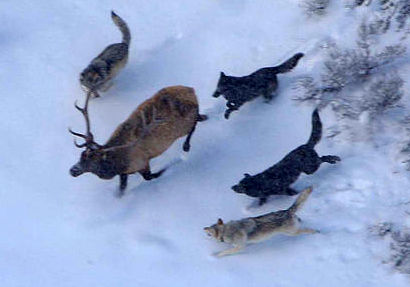Podcast: Play in new window
BOB HIRSHON (host):
How predators protect plants. I’m Bob Hirshon and this is Science Update.
(SFX: Wolf howl)
The howl of the wolf isn’t heard as much as it used to be, and as a result, prey like moose, deer, and elk are thriving. But according to Oregon State University forestry professor William Ripple, this isn’t a good thing. He analyzed 42 ecological studies over the past 50 years. And he found that declines in top predators, especially wolves, lead to a significant loss of plants and trees – because there are more large herbivores like deer to eat them. And he says we probably can’t do the wolves’ work by hunting the herbivores ourselves.
WILLIAM RIPPLE (OregonStateUniversity):
For example, the wolves are on the ground 24/7, and behaviorally are very different than human hunters.
HIRSHON:
But reintroducing wolves to an area, as was done inYellowstone National Park, has been shown to restore many trees and plants to healthier numbers. I’m Bob Hirshon for AAAS, the Science Society.

